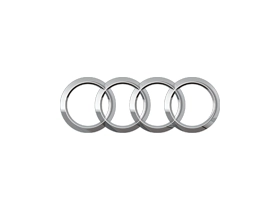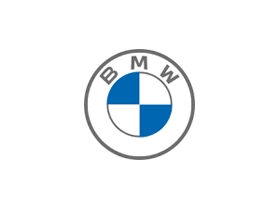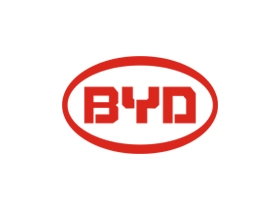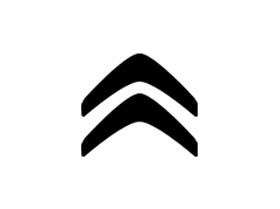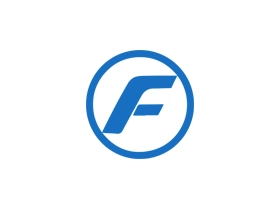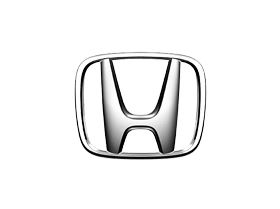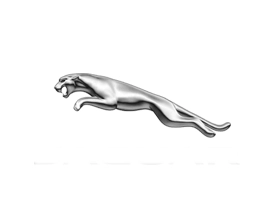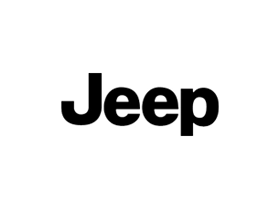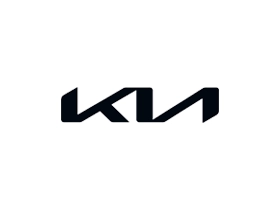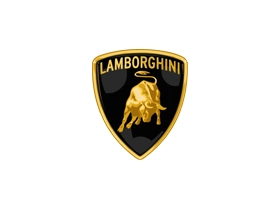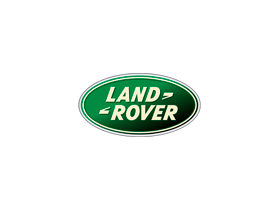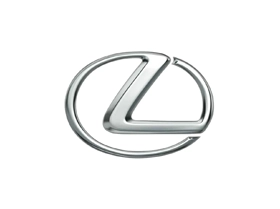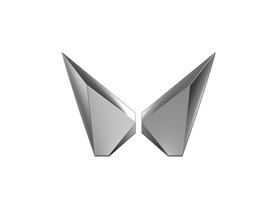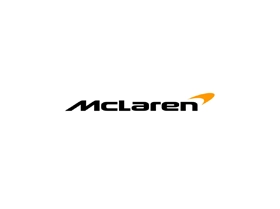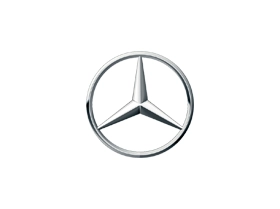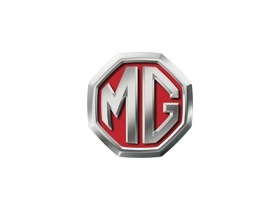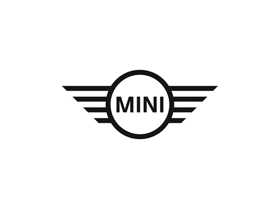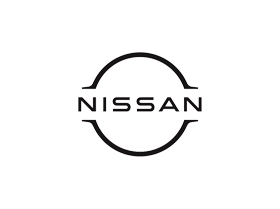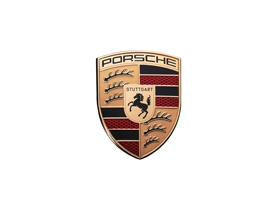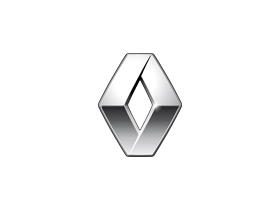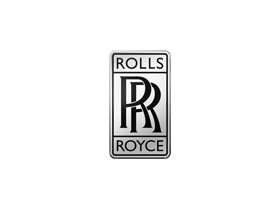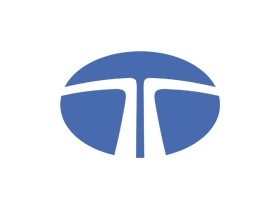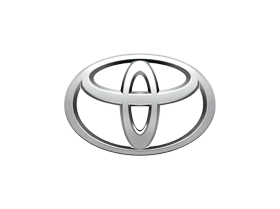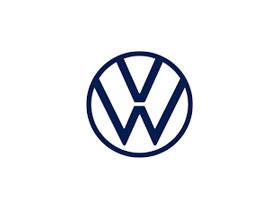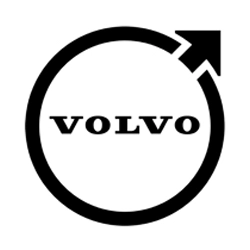Enter Your Car Registration Details
Looking to insure brand new car?
View plans
What is Car Insurance?
In India, car insurance is a mandatory type of insurance policy that offers financial protection to car owners against damages or losses resulting from unforeseen events. All car owners in India must possess at least a third-party liability insurance policy as mandated by law.
There are two main types of car insurance policies available in India: Third-Party Liability Insurance and Comprehensive Insurance.
Third-Party Liability Insurance, the basic policy, covers damages or losses caused to a third party, including bodily injury, death, or property damage resulting from an accident involving the insured car. This insurance policy excludes coverage for damages or losses to the insured car or the policyholder.
Comprehensive Insurance, on the other hand, provides extensive coverage to the car owner for damages or losses caused to the insured car, third-party liability, and personal accident cover. It encompasses incidents like accidents, theft, natural disasters, fire, riots, and other unforeseen events.
Car insurance in India also offers additional benefits such as cashless repairs, towing facilities, and renewal discounts. The premium for the policy depends on various factors like the make and model of the car, the car's age, the policyholder's driving experience, and the selected coverage type.
Having car insurance in India is crucial not just for legal compliance but also to safeguard oneself from unforeseen financial losses due to accidents or other unfortunate events.
Key Features of Car Insurance Policy
The key features of a car insurance policy in India may vary depending on the insurance company and the type of policy. However, some of the common features of car insurance policies in India include:
| Categories | Key Features |
| Third-Party Liability Coverage | Every car insurance policy in India must include mandatory third-party liability coverage, which covers the policyholder's legal liability towards third-party injury, death, or property damage caused by the insured car. |
| Comprehensive Coverage | Car owners can also opt for comprehensive coverage, which provides protection against damages or losses to the insured car, third-party liability, and personal accident cover. |
| Personal Accident Cover | A personal accident cover provides coverage to the policyholder in case of bodily injury or death caused by an accident while driving the insured car. |
| No Claim Bonus | Insurance companies in India offer a No Claim Bonus (NCB) to policyholders who do not make any claims during the policy period. The NCB is a discount on the policy premium during the renewal of the policy. |
| Add-On Covers | Car owners can opt for additional coverage such as zero depreciation cover, engine protect cover, roadside assistance, and consumables cover by paying an additional premium. |
| Cashless Repairs | Many insurance companies in India offer cashless repair facilities at their network garages, which allows the policyholder to get their car repaired without paying any money upfront. |
| Deductibles | A deductible is a fixed amount that the policyholder has to pay towards the claim amount. The higher the deductible, the lower the premium. |
| Renewal | Car insurance policies in India need to be renewed annually. Policyholders must renew their policy before the expiry date to avoid any penalties or lapses in coverage. |
*TP price for less than 1000 CC cars. **All savings are provided by the insurer as per the IRDAI approved insurance plan. Standard T&C apply.
Coverage Under Car Insurance Policy
The coverage under a car insurance policy in India may vary depending on the type of policy and the insurance company. However, here are some of the common coverage provided by car insurance policies in India:
- Third-party Liability: Coverage: Every car insurance policy in India must include mandatory third-party liability coverage, which covers the policyholder's legal liability towards third-party injury, death, or property damage caused by the insured car.
- Own Damage Coverage: Own damage coverage is an optional coverage that provides protection against damages or losses to the insured car caused by accidents, fire, theft, natural disasters, and other unforeseen events.
- Personal Accident Cover: A personal accident cover provides coverage to the policyholder in case of bodily injury or death caused by an accident while driving the insured car.
- Third-Party Property Damage Cover: This covers the damage caused by the insured car to third-party property like buildings, walls, fences, etc.
- Comprehensive Coverage: Car owners can also opt for comprehensive coverage, which provides protection against damages or losses to the insured car, third-party liability, and personal accident cover.
- Add-On Covers: Car owners can opt for additional coverage such as zero depreciation cover, engine protect cover, roadside assistance, and consumables cover by paying an additional premium.
- No Claim Bonus: CInsurance companies in India offer a No Claim Bonus (NCB) to policyholders who do not make any claims during the policy period. The NCB is a discount on the policy premium during the renewal of the policy.
- Cashless Repairs: Many insurance companies in India offer cashless repair facilities at their network garages, which allows the policyholder to get their car repaired without paying any money upfront.
These are some of the common coverage provided by car insurance policies in India. The specific coverage and policy limits can vary depending on the type of policy and the insurance company. It is essential to carefully read and understand the policy document before purchasing a car insurance policy to ensure that it meets your specific requirements.
How to Calculate Car Insurance Premium in India?
The premium for car insurance in India is calculated based on several factors. Here are some of the key factors that determine the car insurance premium:
- Type of Coverage: The type of coverage, such as third-party liability or comprehensive coverage, also affects the premium. Comprehensive coverage is more expensive than third-party liability coverage.
- Insured Declared Value (IDV):IDV is the current market value of the car, which is calculated based on the car's age, make and model, and depreciation. The higher the IDV, the higher the premium.
- Add-On Covers:Optional add-on covers such as zero depreciation cover, engine protect cover, and roadside assistance also affect the premium. The more add-on covers included, the higher the premium.
- Age of the Car: The age of the car also affects the premium. Older cars generally have a lower premium than newer cars.
- Geographical Location: The premium also varies based on the car's location, as the risk of accidents and theft varies by location.
- No Claim Bonus (NCB): NCB is a discount offered to policyholders who do not make any claims during the policy period. The NCB discount can range from 20% to 50% of the premium amount.
- Personal Details: Personal details such as age, gender, and driving experience also affect the premium. Younger drivers and those with less driving experience may have a higher premium.
Insurance companies in India typically offer an online premium calculator tool that allows policyholders to calculate their car insurance premiums. This tool takes into account the aforementioned factors and provides an estimated premium amount based on the details entered by the policyholder.
Benefits of Buying Car Insurance Online in India
Buying car insurance online in India offers several benefits, including:
- Convenience: Buying car insurance online is convenient as policyholders can compare different policies and purchase them from the comfort of their homes or offices.
- Cost-Effective: Buying car insurance online is usually cost-effective as insurance companies offer lower premiums and discounts for policies purchased online.
- Easy Comparisons: Policyholders can easily compare different policies from various insurance companies and select the one that best suits their needs.
- Transparency: Online car insurance policies are transparent, and policyholders can easily understand the terms and conditions of the policy before purchasing it.
- Instant Policy Issuance: Online car insurance policies are issued instantly, and policyholders can download the policy document immediately after payment.
- Renewal Reminders: Online car insurance policies are issued instantly, and policyholders can download the policy document immediately after payment.
- Customer Support: Online car insurance policies are issued instantly, and policyholders can download the policy document immediately after payment.
- Add-On Covers: Online car insurance policies are issued instantly, and policyholders can download the policy document immediately after payment.
In summary, buying car insurance online in India is a convenient, cost-effective, and transparent way to purchase car insurance. It offers several benefits, including easy comparisons, instant policy issuance, renewal reminders, and customer support.
How to File a Car Insurance Claim in India?
To file a car insurance claim in India, follow these steps:
- Inform the Insurance Company: The first step is to inform the insurance company about the accident or loss. The policyholder can inform the insurance company by calling their toll-free number or by sending an email.
- Provide Information: : The policyholder needs to provide the insurance company with details about the accident, such as the location, date and time, and the nature of the loss.
- File an FIR:In case of a theft or a major accident, it is necessary to file an FIR with the local police station and provide a copy of the FIR to the insurance company.
- Survey and Inspection: The insurance company will appoint a surveyor who will inspect the car and assess the damages. The policyholder needs to provide the surveyor with all the necessary documents such as the car registration certificate, driving license, and insurance policy document.
- Repair the Car: After the survey, the policyholder can get the car repaired at a network garage or any other garage of their choice. The insurance company will provide cashless or reimbursement facility as per the policy terms.
- Submit Documents:Once the repairs are complete, the policyholder needs to submit the original bills, receipts, and other necessary documents to the insurance company for reimbursement.
- Claim Settlement: Based on the surveyor's report and the submitted documents, the insurance company will settle the claim amount as per the policy terms and conditions.
It is important to note that the policyholder needs to file the claim within the specified time limit mentioned in the policy document. Also, the policyholder should not admit to any liability or negotiate with the third-party without the insurance company's permission
Type of Car Insurance in India
-
Comprehensive Car Insurance
Comprehensive car insurance is a type of car insurance policy that grants extensive coverage for the policyholder's car. This policy type covers a broad spectrum of risks, including damage to the insured car, theft, and third-party liability. In India, while comprehensive car insurance policies are optional, they are highly recommended for car owners.
-
Third-Party Car Insurance
Third-party car insurance is a type of car insurance policy that addresses the policyholder's liability for third-party damage or injuries resulting from incidents involving the policyholder's car. In India, third-party car insurance is compulsory for all car owners under the Motor Vehicles Act, of 1988. This policy specifically excludes coverage for damages to the policyholder's car or personal injuries sustained by the policyholder.
-
Own Damage Car Insurance
Own damage car insurance is a type of car insurance policy designed to provide coverage for the policyholder's car against damages resulting from accidents, natural disasters, or other perils. This particular policy serves as an optional add-on to third-party car insurance and is highly recommended for car owners seeking comprehensive coverage for their vehicles.
How to Choose Car Insurance Policy Online in India?
Choosing the right four-wheeler insurance policy online can seem overwhelming, given the number of options available in the market. Here are some tips to help you choose the best policy for your car:
-
Determine Your Requirements: Before you start looking for car insurance policies, determine your requirements. Decide whether you want a third-party or a comprehensive policy, and what type of coverage you need. This will help you narrow down your options and choose the policy that suits your needs.
-
Compare Policies: Once you have identified your requirements, compare the different policies available online. Look for policies that offer the coverage you need at a reasonable premium.
-
Check the Insurer's Reputation:Before you choose an insurer, check their reputation online. Look for reviews from other customers to see how the insurer has treated their clients in the past.
-
Check the Claim Settlement Ratio: The claim settlement ratio is the percentage of claims settled by the insurer. Look for insurers with a high claim settlement ratio, as this indicates that they are more likely to settle claims without hassle.
-
Check for Discounts: Many insurers offer discounts on car insurance policies. Check if you are eligible for any discounts such as no-claim bonus, anti-theft device installation, etc. This can help you save money on your premiums.
-
Read the Policy Documents Carefully: Before you buy a policy, read the policy documents carefully. Make sure you understand the terms and conditions, coverage, deductibles, and exclusions. This will help you avoid any surprises at the time of making a claim.
In summary, to choose the right four-wheeler insurance policy online, determine your requirements, compare policies, check the insurer's reputation and claim settlement ratio, look for discounts, and read the policy documents carefully. Taking these steps will help you choose the policy that provides the coverage you need at a reasonable premium.
How to Calculate Four Wheeler Insurance Premium Online?
To calculate the premium of your car insurance policy online is quite a simple process. Below are some steps to find the premium of your car insurance through the premium calculator:
- Choose the brand, model, fuel type & variant of your car.
- Select the city where your car is registered correctly.
- Set the year in which you bought your car.
- Tell us, if you have made any claim in the previous year by selecting ‘Yes’ or ‘No’.
- Enter your name and mobile number on which you will get an OTP. On entering the OTP, you will get various policy premium quotes to choose a plan from.
How to File a Online Car Insurance Claim?
A car insurance claim can be processed through two methods: cashless claim or reimbursement claim. If you opt for a cashless claim, you visit a network (partner) garage affiliated with your insurance provider for the repair work. In this case, the claim is settled directly between the garage and the insurance company, and you do not need to pay for the covered expenses upfront.
On the other hand, if you choose a reimbursement claim, you can visit a non-network garage of your choice for repairs. In this scenario, you are required to settle the repair costs with the garage yourself. Subsequently, you can submit the relevant documents, including invoices and receipts, to your insurance provider for reimbursement. The insurance company will then review the documentation and reimburse you for the eligible expenses covered by the policy.
You can follow the below steps to make a car insurance claim -
- Inform your insurance provider about the incident.
- Get your claim intimation number.
- A surveyor will visit the place of the incident to assess the damages.
- Your insurance provider will arrange for towing services for your car, if required.
- Get your car repaired at either a cashless network garage or a garage of your car.
- The claim will be settled by the insurance provider in accordance with the garage chosen by you for repairs.
What are the Documents Required for Car Insurance Policy in India?
To purchase a car insurance policy in India, the following documents are generally required:
-
Vehicle Registration Certificate (RC): The original copy of the Vehicle Registration Certificate is required to purchase a car insurance policy. It contains important details about the car such as the make and model, engine and chassis number, and registration date.
-
Identity Proof: A valid identity proof such as a driving license, passport, Aadhaar card, or Voter ID is required to purchase a car insurance policy.
-
Address Proof: A valid address proof such as a utility bill, rental agreement, or Aadhaar card is required to purchase a car insurance policy.
-
Previous Insurance Policy Documents: If the car is already insured, then the policyholder needs to provide the previous insurance policy documents while purchasing a new policy or renewing an existing one.
-
Passport Size Photographs: Passport size photographs of the policyholder are required to purchase a car insurance policy.
-
PAN Card: The PAN card is required for premium payment and tax purposes.
The specific documents required may vary depending on the insurance company and the type of policy. It is always recommended to check with the insurance company for the list of documents required before purchasing a car insurance policy.
FAQs About Car Insurance Policy
Ans: Comprehensive insurance is considered the best as it provides complete protection for your car. In case you want insurance for an old car, buying a third-party policy is the best as it provides mandatory coverage and is pocket-friendly.
Ans: New car insurance is always expensive because the IDV of the car is maximum at this point. The value of the car depreciates with age, which brings down its IDV. Moreover, most people buy multiple add-ons, which also hikes their premium amount.
Ans: You can reduce the premium of your 4 wheeler insurance policy by:
Ans: Comprehensive insurance for cars under Rs. 5 lakh in India can range from Rs. 7,000 to Rs. 12,000 annually.
Ans: There are many ways to calculate the insurance premium for a car. One of the most common methods involves using the formula: Premium = (Present Value of Future Benefits) / (1+Risk-Free Rate) Time.
Ans: The validity period for car insurance in India is 1 year. Car insurance policies typically need to be renewed annually to maintain coverage.
Ans: In general, third-party insurance is cheaper than comprehensive insurance. However, there are some important distinctions between the two types of coverage:
- Third-Party Insurance:
- Third-party insurance is the minimum legally required coverage in most countries, including India.
- It covers liability for damage or injury caused to a third party (other people, vehicles, or property) by your vehicle.
- Third-party insurance does not cover damages to your vehicle in case of an accident or theft.
- Comprehensive Insurance:
- Comprehensive insurance provides broader coverage. It includes both third-party liability coverage and coverage for damages to your vehicle.
- This type of insurance covers various risks, including accidents, theft, natural disasters, vandalism, and more.
- While comprehensive insurance offers more extensive protection, it comes at a higher cost due to its broader coverage.
Because comprehensive insurance includes coverage for both third-party liability and damages to your vehicle, it tends to be more expensive than third-party insurance. The cost of comprehensive insurance can vary based on factors such as the value of your vehicle, location, driving history, and other considerations.
When deciding between third-party and comprehensive insurance, it's essential to weigh the benefits of the coverage against the cost. Third-party insurance provides basic legal coverage while comprehensive insurance offers more comprehensive protection. Your decision should be based on your circumstances, budget, and the level of risk you're willing to assume.
Ans: One-year own damage insurance refers to a type of insurance coverage for a vehicle that protects against damage to your vehicle due to various reasons. This coverage is typically part of comprehensive car insurance policies. Here's what it entails:
- Own Damage Coverage: This coverage protects your vehicle against a wide range of risks, including accidents, collisions, theft, vandalism, natural disasters (like floods, earthquakes, etc.), fire, and other unforeseen events that can cause damage to your vehicle.
- One-Year Term: The term "one year" indicates the duration of the insurance policy. Most car insurance policies, including comprehensive ones, are typically valid for one year. You need to renew the policy annually to continue enjoying the coverage.
- Premium: You pay a premium to the insurance company to maintain this coverage. The premium amount depends on various factors such as the make and model of your vehicle, your location, your driving history, and the coverage limits you choose
- Exclusions: While own damage coverage provides significant protection, it may have certain exclusions or limitations mentioned in the policy terms and conditions. It's essential to review these exclusions to understand what scenarios may not be covered.
- Deductibles:Some comprehensive policies include a deductible or excess amount. This is the portion of the claim that you agree to pay out of your pocket before the insurance coverage kicks in. Choosing a higher deductible might reduce your premium but means you'll pay more in case of a claim.
- Add-Ons:You can enhance your comprehensive coverage with add-ons or riders that offer extra protection. These could include zero depreciation, roadside assistance, engine protection, consumable coverage, and more.
In summary, one-year own damage insurance, part of a comprehensive policy, provides coverage for damages to your vehicle due to various reasons for one year. It's important to read and understand your insurance policy to know what is covered and what is not, so you can make informed decisions and be prepared in case of unexpected events.



.webp)
